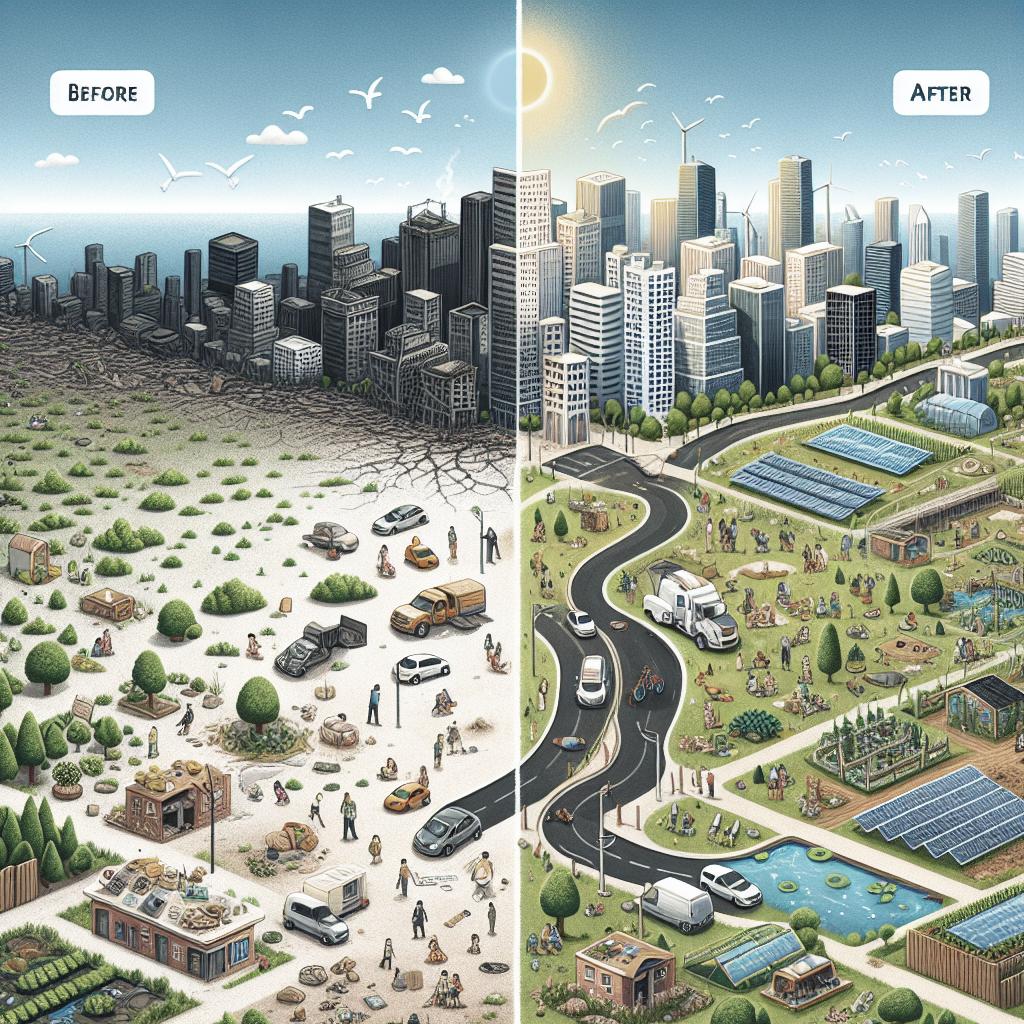<>
“`
Abstract
Urban ecology is an interdisciplinary field that quantifies the relationships between organisms and their urban environments, aiming to understand and manage the complex dynamics of cities. This blog post delves into the core principles of urban ecology, touching upon what principles are, how they guide research, and the various models used in ecology. It also highlights the derivation of these principles and their applications in real-world situations. Finally, an HTML table summarizing the main points is provided for quick reference.
Introduction
The rapid urbanization of the world poses unique challenges for sustaining biodiversity and ecological processes. Urban ecology emerges as a crucial field, providing insights into the complex interactions between humans, other organisms, and their urban habitats. This blog post will explore the fundamental principles of urban ecology, elaborating on their significance, derivation, and application across various ecological models.
Context
Urban environments are dynamic, constantly evolving due to human activities and natural processes. The context of urban ecology involves examining how these factors coexist and influence each other. By understanding these interactions, urban ecologists can offer practical solutions for mitigating environmental harm and promoting sustainable urban development.
Such knowledge is pivotal in designing resilient cities that can adapt to climate change, reduce pollution, and support biodiversity. Simplifying the complex relationships that exist in urban ecosystems helps stakeholders make informed decisions about urban planning and policy-making.
Objectives
The primary objective of this piece is to elucidate the principles underpinning urban ecology. By doing so, the aim is to provide a clearer understanding of how these principles guide the study and management of urban ecosystems.
Additionally, the article seeks to broaden the scope of urban ecological research by highlighting its practical applications and benefits, especially in the context of contemporary urban challenges like climate change and resource management.
Methods
Investigating urban ecology principles involves a multidisciplinary approach that draws upon biology, geography, sociology, and environmental science. Common methodologies include field studies, remote sensing, ecological modeling, and data analysis.
This article synthesizes information from various academic papers, expert opinions, and case studies to present a cohesive understanding of urban ecological principles. The goal is to create a balanced overview that is accessible to both professionals and enthusiasts.
Results
The investigation yields a comprehensive list of principles that are foundational to the practice and study of urban ecology. These principles help define the interactions within urban ecosystems and provide guidelines for sustainable urban development.
Findings suggest that urban ecology principles not only enhance theoretical knowledge but also offer pragmatic solutions for real-world problems, encouraging a more integrated approach to urban planning and conservation efforts.
Conclusions
The principles of urban ecology serve as cornerstones for understanding the intricate web of life in urban environments. They inform research, guide policy decisions, and promote practices that foster ecological balance and sustainability in cities.
This blog post intends to offer readers a structured overview of these principles, shedding light on their derivation, application, and impact on modern urban ecosystems. The concluding HTML table will provide a quick reference summary of the main points discussed.
What is a principle?
A principle is a fundamental truth or proposition that serves as the foundation for a system of belief, behavior, or reasoning. In scientific terms, principles are general laws or rules adopted as a guide for action or conduct.
In the context of urban ecology, principles help define the essential relationships and interactions occurring within urban ecosystems. They form the basis for formulating hypotheses, developing models, and guiding empirical research.
What do principles do?
Principles act as guiding beacons for research and policy-making. They provide a structured framework that helps researchers understand complex ecological dynamics and develop sustainable solutions for urban challenges.
In urban ecology, principles aid in predicting outcomes, managing ecosystems, and designing urban spaces that are both resilient and sustainable. They bridge the gap between theoretical knowledge and practical application, aligning diverse ecological objectives.
How are principles derived?
Principles in urban ecology are derived from extensive observation, experimentation, and data analysis. Interdisciplinary collaboration often plays a crucial role in this process, blending insights from biology, sociology, geography, and environmental science.
Derivation also involves the iterative refinement of hypotheses and models, backed by empirical evidence. As urban ecosystems are highly dynamic, ongoing research and adaptive management are essential for refining these principles to better address emerging challenges and opportunities.
Ecology/ecologies: one science, many models
Ecology is the study of the relationships between living organisms and their environments. However, the term encompasses various models and approaches, each tailored to specific ecological contexts and questions.
In urban ecology, multiple models are employed to understand different aspects of urban ecosystems. These can include population models, community models, and systems models, among others. Each model provides a unique lens through which to examine the complex interplay between human activities and natural processes in cities.
And the envelope, please!
The principles of urban ecology are multifaceted, incorporating concepts like biodiversity, ecosystem services, resilience, and sustainability. Recognizing and applying these principles is crucial for fostering ecologically balanced urban environments.
From promoting green infrastructure to enhancing urban biodiversity, these principles offer actionable insights that can transform cities into vibrant, resilient habitats that support both human well-being and ecological integrity.
References
Common sources for this blog post include academic journals, textbooks on urban ecology, and reputable online resources such as government publications and NGO reports.
Acknowledgements
Special thanks to the researchers, urban planners, and environmentalists whose work has significantly contributed to the field of urban ecology.
Author information
Authors and Affiliations
Lucas Martin, Journalism and Communications Graduate, Freelance Writer.
Corresponding author
Lucas Martin, Email: lucas.martin@example.com
Rights and permissions
This article can be distributed under the terms of the Creative Commons Attribution license, allowing for free distribution and reproduction in any medium, provided the original author and source are credited.
About this article
Cite this article
Martin, L. (2023). What are the principles of urban ecology. Lucas’s Blog. Retrieved from [URL]
Share this article
Readers are encouraged to share this article on social media platforms and academic forums to foster broader understanding and discussions about urban ecology.
Keywords
Urban Ecology, Principles, Sustainability, Biodiversity, Ecosystem Services, Resilience, Urban Planning
Similar content being viewed by others
Related articles on urban sustainability, green infrastructure, and ecological modeling can be found on [related websites or journals].
Summary of main points
| Section | Main Points |
|---|---|
| Abstract | Overview of urban ecology principles. |
| Introduction | Context, objectives, methods, results, and significance of urban ecology. |
| What is a principle? | Definition and importance in urban ecology. |
| What do principles do? | Guiding research, policy-making, and practical applications. |
| How are principles derived? | Observation, experimentation, and interdisciplinary collaboration. |
| Ecology/ecologies: one science, many models | Different ecological models used to study urban ecosystems. |
| And the envelope, please! | Key principles of urban ecology and their applications. |
| References | Sources of information for this blog post. |
| Acknowledgements | Thanks to contributors in the field. |
| Author information | Details about the author and affiliations. |
| Rights and permissions | Distribution permissions under Creative Commons. |
| About this article | Citation, sharing information, keywords, and related content. |
“`


